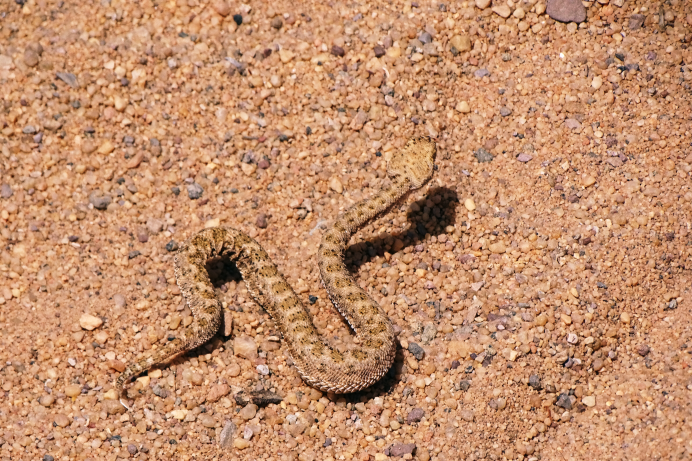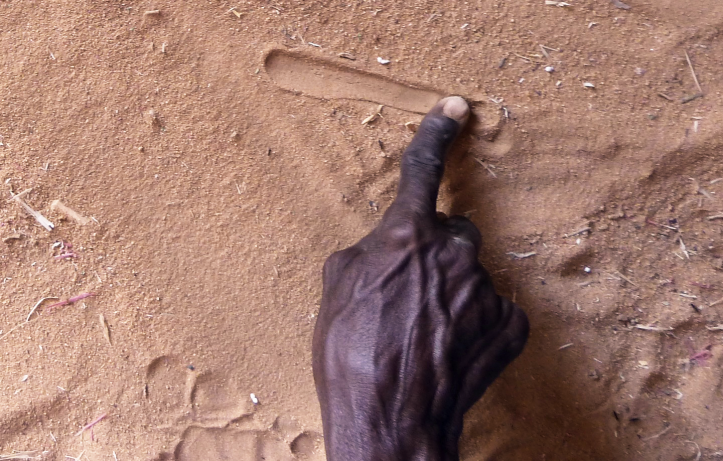For centuries, the history of Africa and of its science have been generally disregarded or devalued in the Global North. Knowledge from the continent has been framed by the West as not “scientific,” or presented as if it could only have been obtained and understood by Western scientists. Our project “An African History of Knowledge and Science beyond Academic Conventions” seeks to challenge this notion. Its individual projects focus on the topic of knowledge; most of them are located in the Sahara and the Sahel regions (Algeria, Burkina Faso, Chad, Cameroon, Niger). Three priorities sit at the center of the initiative as a collective endeavor: one is interdisciplinary research, a second is the question of ownership of knowledge, and a third is a rethinking of the concept of the archive.
Agriculture and a Proverb Archive: Knowledge from the Sahara
Two projects in the initiative are dedicated to the local history of knowledge in the Sahara. Anthropologist and archeologist Dida Badi explores agricultural knowledge and know-how in the Tassili n’Ajjer plateau in Algeria and Libya, tracing the development of agricultural knowledge of date palm culture and cereal cultivation. His work looks at contemporary practices, oral traditions, and material culture, the roots of which go back to the culture of the Garamantes. These peoples have inhabited the Fezzan in the interior of Libya since at least the fifth century BC.
Mahuma Abaliy Sediké is a “local” historian of the Tubu people, and focuses on knowledge in the Kawar and Djado regions in Niger. He opens up perspectives for our project outside of academia: without having completed a university education, he has published the academic work DAGA TUDAA. Pensées Toubou: Proverbes du Sahara Central (2021). His passion, which he continues to pursue in his project exploring an archive of Tubu history, is the knowledge of the Tubu people and their oral tradition. He meticulously collects proverbs, riddles, and fairy tales, writes them down and explains them to academics and non-academics alike. Together this means an opening towards and exploration of epistemologies that might be completely different from “modern scientific” ones.

Dida Badi working with the elder Alhadj Bagui in a garden of Janet. Source: Dida Badi, 2024.
The desert is home to thousands of years of knowledge. This image shows an ancient settlement in the Kawar/Central Sahara. Source: Tilman Musch, 2017.
Snakes and Soils: Local Knowledge from the Sahel
Two further projects focus on knowledge in the Sahel, a region that borders the south of the Sahara. Yacouba Banhoro is a medical historian researching how people without access to “modern” medicine treat poisoning caused by snakebites—a topic that is highly relevant due to the lack of access to “modern, Western” treatment methods for many people in Africa. Focusing on various regions of Burkina Faso, his project combines perspectives from the history of medicine, ethnomedicine, and biomedicine. Yacouba is particularly interested in how and why the approaches of “modern” medicine and “local” healers differ and how “local” knowledge could contribute to innovation in “modern” medicine.

Yacouba Banhoro is working to learn how to heal poisoning caused by snake bites. Here is a small horned viper (Cerastes cerastes). Source: Tilman Musch, 2021.
Sani Ibrahim is a geologist researching the pedological, or soil-related, knowledge of farmers in central Niger. Agriculture takes place under extreme environmental conditions in this region due to drought and heat, and so the issue of healthy soil is central. Sani therefore wants to know how local farmers understand soils, as well as how soils have developed over the centuries under the influence of humans. Through his interdisciplinary approach he merges methods of “modern” soil science with those available to local farmers for analyzing soils. This is then used to create maps of “local” pedological knowledge.
Local conceptions of soils are at the center of Sani Ibrahim’s interests. This image shows the exploitation of sodium carbonate in northeastern Niger. Source: Tilman Musch, 2024.
Science and Knowledge in African Linguistics and Archeology
A further pillar of this initiative is the work of two researchers based at the Max Planck Institute for the History of Science. Emmanuel Ngue Um is a linguist from Cameroon who explores epistemic, theoretical, and methodological approaches towards recalibrating African linguistics. He wants to move towards an innovative linguistics, one that analyzes languages in the context of their social and cultural dynamics. Emmanuel’s aim is to rethink rigid epistemic concepts constructed by colonialism towards a fluidity that better resembles that which characterized pre-colonial spaces.
And Dijmet Guemona is an archeologist from Chad with a particular interest in pre-industrial metallurgy in the Guéra region. He also explores the question of how the development of iron tools has influenced agriculture in the region. In his approach, Djimet combines the study of material culture with the analysis of oral traditions. To do this he interviews knowledge-holders of the region about iron smelting and agricultural practices, in order to supplement existing archeological evidence with records from collective memory.

Recording languages in Emmanuel Ngue Um’s project. Source: Emmanuel Ngue Um, 2024.
Djimet Guemona’s interest lies in pre-industrial metallurgy. This is the iron slag from former furnaces from the Ennedi (Chad). Source: Tilman Musch, 2024.
Like Letters in the Sand...
Together, all of these projects combine to address the three goals of this initiative to explore an African history of knowledge and science beyond academic conventions. First, through their approaches centering “local” knowledge—and recognizing it as central—Dida, Mahuma, Yacouba, Sani, Emmanuel, and Djimet reformulate the question of who owns knowledge, and how. Second, through combining “local” knowledge with “modern” scientific disciplines, they work in a decidedly inter- and transdisciplinary way. Third, by exploring material culture, oral traditions, healing knowledge, soils, and language, they move away from the idea of an archive as a fixed repository of written documents. Collectively, all members of the initiative are enthusiastically working on an innovative and dynamic concept of the archive that may change at any time—just as the desert wind blows away the Tifinagh letters that the man drew for us in the sand.

Written in the desert sand: letters, maps, and symbols are drawn into the substrate with a finger. Source: Tilman Musch, 2024.
The priorities of the initiative are also presented in lectures on knowledge and science. Topics of these lectures range from bees and ecology in Cameroon, through mineral resources and sustainability in Nigeria, to the educational landscape in Chad. The lectures took place or are taking place in 2023 and 2024 and are aimed at a broad audience.
